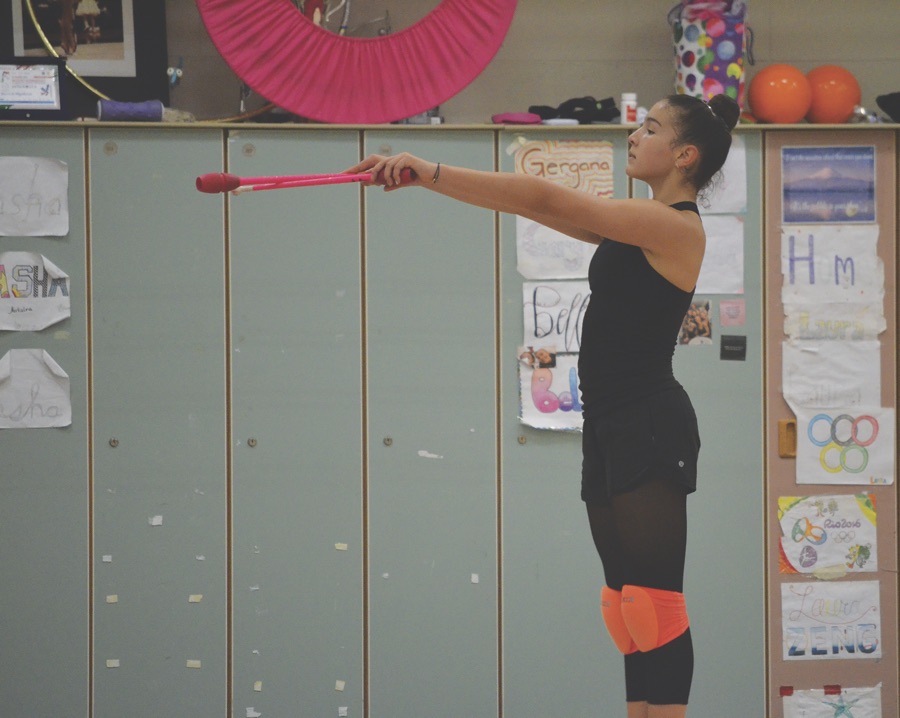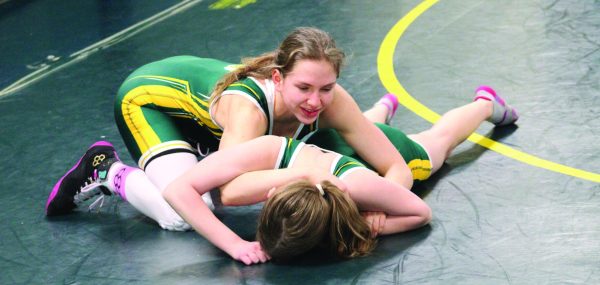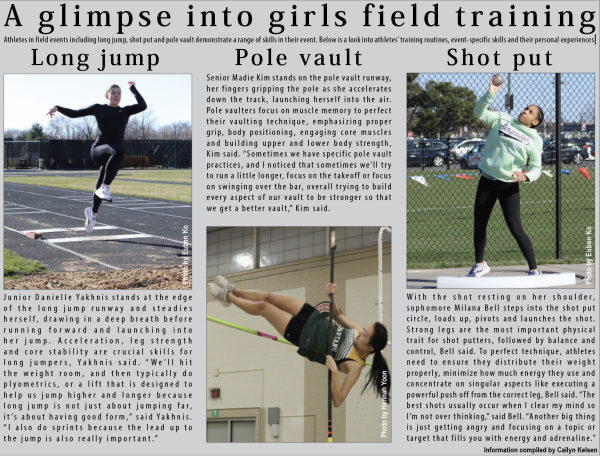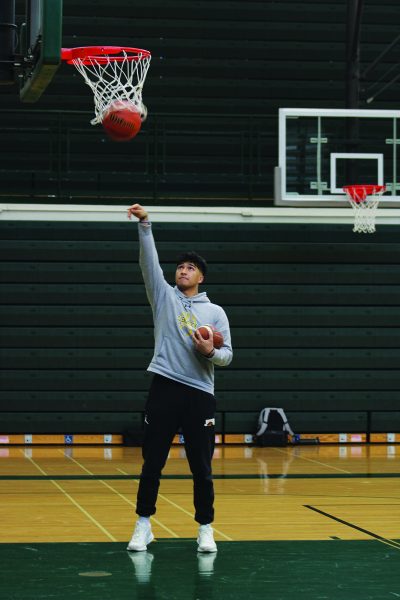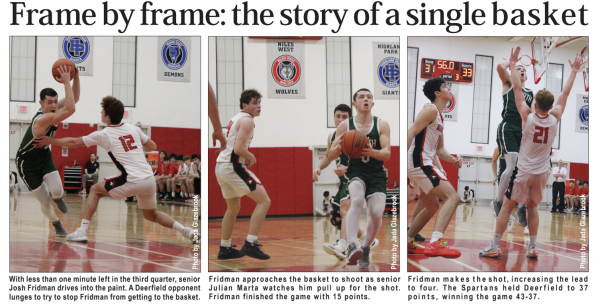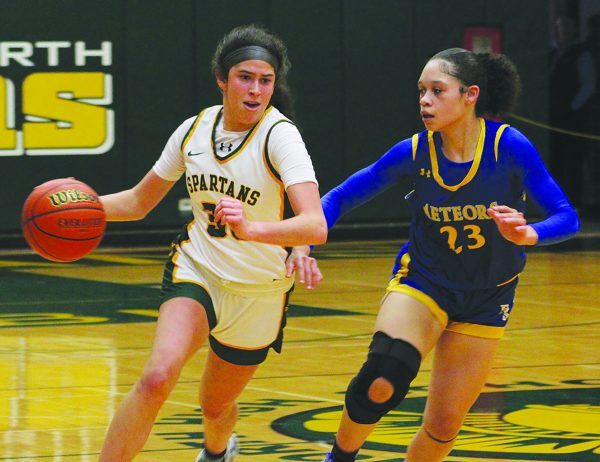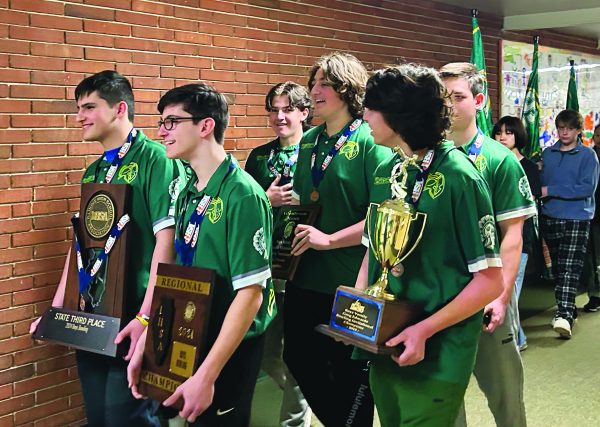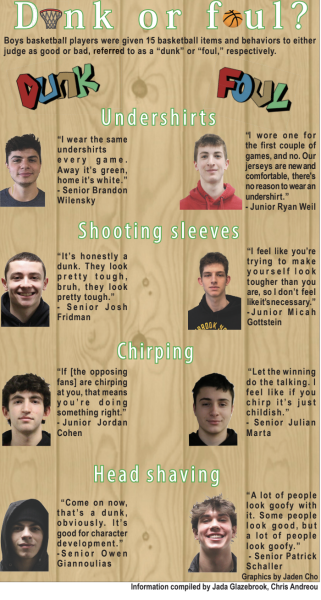Leaping towards an Olympic dream
Rhythmic gymnasts relocate across the country to prepare
Near the end of her routine, senior Hana Starkman points her clubs, which are one of the five gymnastics apparatuses, during practice at the Sachs Recreation Center on Sept. 5. Starkman moved from Florida to Northbrook to train after qualifying for the USA National Rhythmic Group. Photo by Jenna Amusin
Moving across the country to train in the USA National Rhythmic Group, seniors Hana Starkman and Isabella Ivanova not only share Olympic aspirations, but also an apartment in Northbrook. Starkman, initially from Florida, and Ivanova, originally from Washington, moved to Northbrook after qualifying for the USA National Rhythmic Group last December. Ivanova and Starkman were selected to compete alongside five other gymnasts in the World Rhythmic Gymnastics Championships later this October in Kitakyushu, Japan.
Starkman and Ivanova were among the 14 gymnasts selected from more than 50 to attend a second audition, and after traveling to Northbrook for the second audition, they were asked to be part of the USA National Rhythmic Group.
“Getting first and second place all around in local and state competitions was great short-term, but being able to represent my country just really meant so much to me,” Starkman said.
According to Ivanova, her and Starkman’s families came up with the idea to share an apartment together soon after arriving in Northbrook.
“At first I was living with my mom,” said Ivanova. “We rented our own apartment, and [Starkman] was staying with her dad in the same apartment complex. Then [our families] met, we went to dinner, and we thought it would just be smarter if we shared an apartment and split it.”
There is always one parent who stays in the Northbrook apartment with both girls. Every couple of weeks the families rotate, and a new parent flies in to stay with them.
Leaving his daughter with another family for the first time was extremely difficult, Ivanova’s father Boris Ivanova said in a phone interview.
“It was heartbreaking,” said Boris Ivanova. “It was devastating, but you know, I knew that [Isabella] was in good hands, and [Starkman’s] family was very nice and supportive.”
Boris Ivanova wishes he did not have to travel back and forth from Washington in order to see his daughter, he said.
“But sometimes you gotta make sacrifices, and [not living with Isabella] is one of them.”
Margarita Mamzina, USA National Rhythmic Group coach, said in a phone interview that flexibility, tumbling ability and coordination are all essential to being a successful rhythmic gymnast.
“[Starkman and Ivanova] have all the potential,” said Mamzina. “Now it’s up to training and development.”
The rhythmic group trains six days a week from 1:30 p.m. to 6:00 p.m. on weekdays and 8:30 a.m. to 1:00 p.m. on Sundays. Starkman and Ivanova’s schedules accommodate their training schedules by allowing them to leave school early.
Following their upcoming trip to Japan, the rhythmic group hopes to qualify for the Paris 2024 Olympic Games, Isabella Ivanova said.
“Once we’re done in Japan, the new cycle starts,” said Isabella Ivanova. “There are new apparatuses, so obviously we’re going to get new routines choreographed, and it’s just practice, going to more international competitions, more local competitions, training as a group more together and just getting better and better.
“[Making the Olympics] all depends on how we do next year and the following year.”


